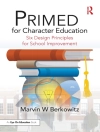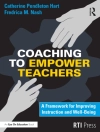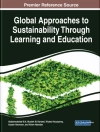At the turn of the millennium, Indian journalism has undergone significant changes. The rapid commercialization of the press, together with an increase in literacy and political consciousness, has led to swift growth in the newspaper market but also changed the way news makers mediate politics. Positioned at a historical junction where India is clearly feeling the effects of market liberalization, this study demonstrates how journalists and informants interactively create new forms of political action and consciousness. The book explores English and Hindi newsmaking and investigates the creation of news relations during the production process and how they affect political images and leadership traditions. It moves beyond the news-room to outline the role of journalists in urban society, the social lives of news texts and the way citizens bring their ideas and desires to bear on the news discourse.
This important volume contributes to an emerging debate about the impact of the media on Indian society. Furthermore, it convincingly demonstrates the inseparable link between media related practices and dynamic cultural repertoires.
Tabela de Conteúdo
List of Abbreviations
List of Figures and Tables
Acknowledgements
Chapter 1. Introduction
Chapter 2. Lucknow News
Chaoter 3. Local Voices: Empowerment through News-Making
Chapter 4. Political Reporting: Sites of Engagement – Performances of Distance
Chaoter 5. Infotainment: Re-Writing Politics after Economic Liberalisation
Chapter 6. Conclusions
References
Index
Sobre o autor
Ursula Rao is Professor of Anthropology at the University of Leipzig, Germany. Her research focus is urban life and cultural transformations. She works in the fields of Media Anthropology, E-Governance and Ritual Studies. Some of her recent English language publications are The Cultural Politics of Disadvantage in South Asia (Asian Studies Review, 33(4), edited together with Assa Doron); Making the Global City: Urban Citizenship at the Margins of Delhi (Ethnos 74(4): 402-424.); and Celebrating Transgression: Method and Politics in the Anthropological Study of Cultures (Berghahn, 2006).












